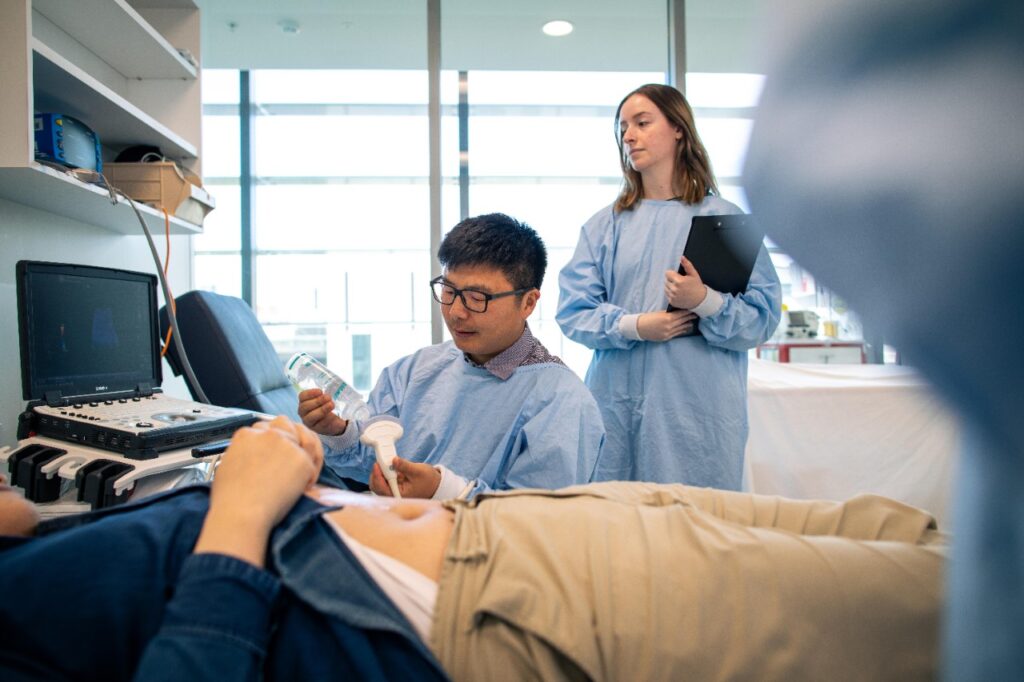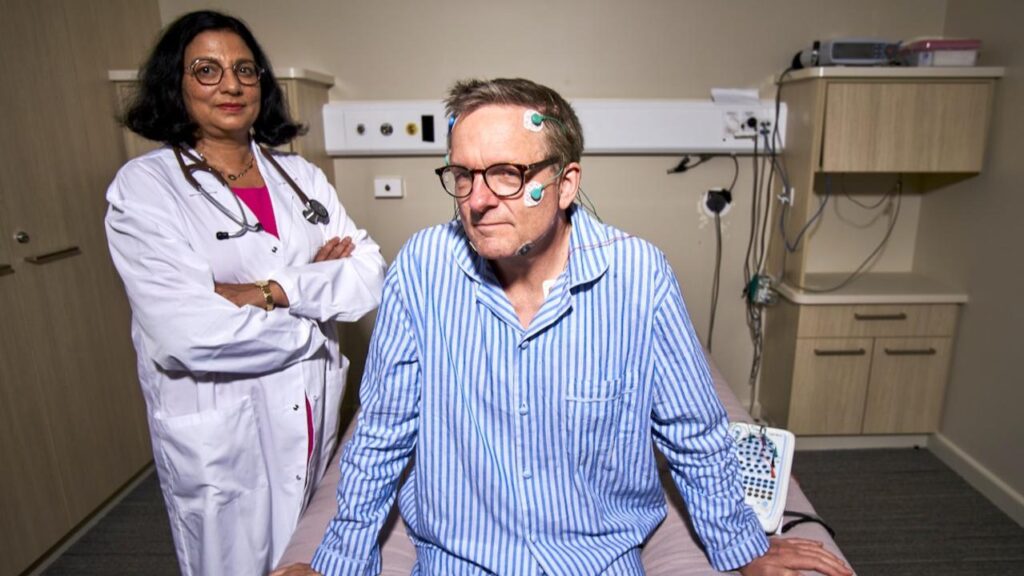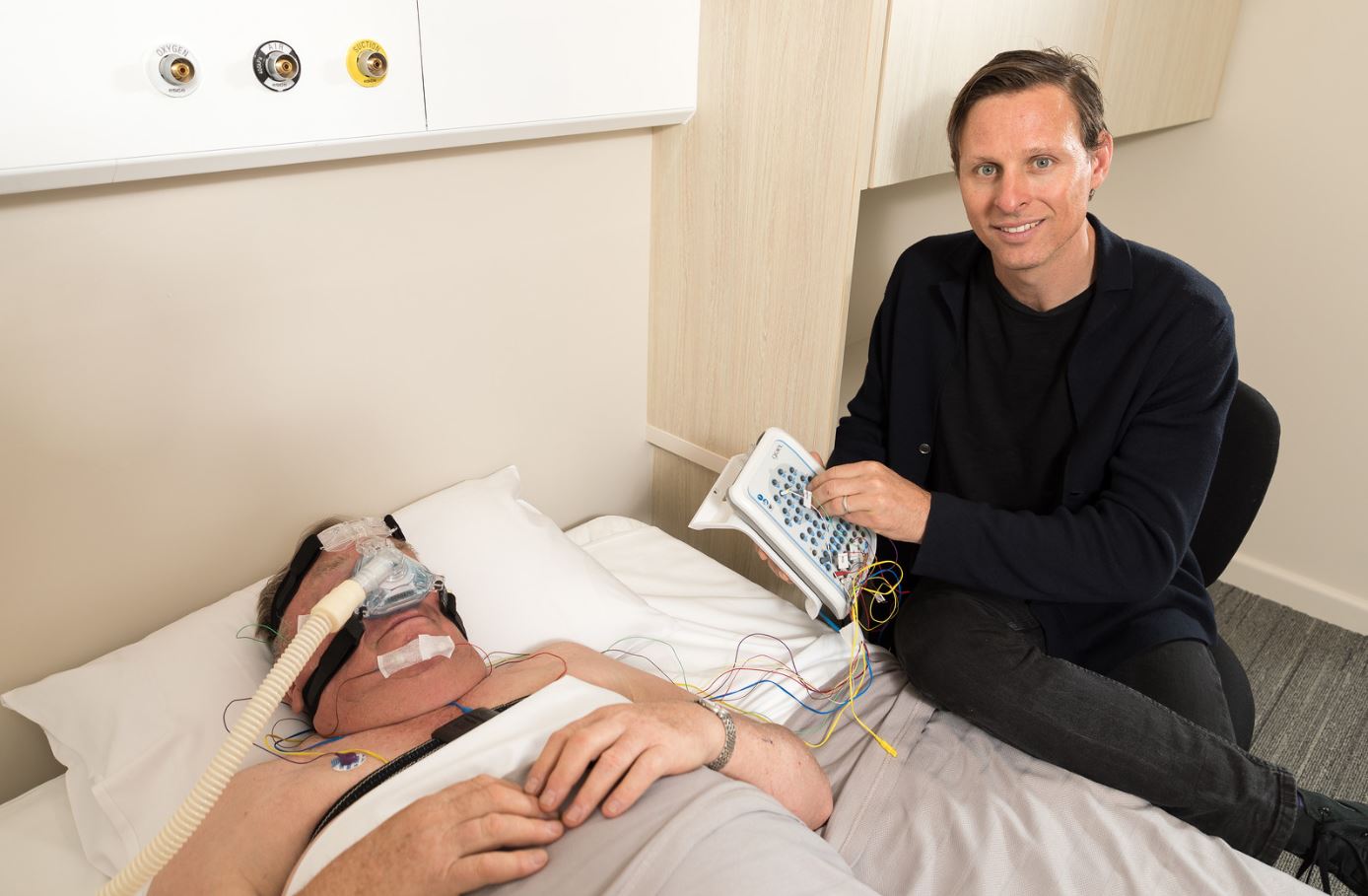Having a good night’s sleep is essential for our overall health and well-being. However, there are times when sleep disturbances can disrupt our daily lives. In such cases, a sleep study can be a valuable tool in understanding and addressing sleep-related issues. In Adelaide, sleep studies are conducted by experienced sleep specialists who utilize advanced techniques to diagnose and treat sleep disorders effectively.
The Importance of Sleep Studies
Sleep studies play a crucial role in identifying and diagnosing sleep disorders. These disorders can have a profound impact on our physical and mental health if left untreated. By undergoing a sleep study, individuals can gain valuable insights into the quality and quantity of their sleep, allowing for targeted interventions to improve overall sleep health.
Overall, understanding the sleep study Adelaide process and working with qualified sleep specialists in Adelaide can pave the way for better sleep health and improved overall well-being. By taking the necessary steps to address sleep disorders, individuals can experience quality sleep and enjoy a better quality of life.
Moreover, sleep studies are not only beneficial for diagnosing existing sleep disorders but also for preventing potential health complications that may arise from untreated conditions. For instance, untreated sleep apnea has been linked to an increased risk of cardiovascular diseases, high blood pressure, and stroke. Therefore, early detection through a sleep study can lead to timely interventions and reduce the risk of developing serious health issues.
Identifying Sleep Disorders
A sleep study helps in identifying various sleep disorders, such as sleep apnea, insomnia, narcolepsy, and restless leg syndrome. Through a comprehensive assessment of an individual’s sleep patterns, sleep studies enable sleep specialists to accurately diagnose these conditions, leading to appropriate treatment strategies.
Furthermore, the data collected during a sleep study can provide valuable information about the severity and frequency of sleep disturbances, helping healthcare providers tailor treatment plans according to the specific needs of each patient. This personalized approach ensures that individuals receive the most effective interventions to address their sleep-related issues.

Improving Sleep Quality
By understanding the underlying causes of sleep disturbances, sleep studies enable individuals to take steps towards enhancing their sleep quality. Through the identification of lifestyle factors, sleep hygiene practices, and other potential contributors to sleep disruptions, sleep specialists can provide personalized recommendations for improving sleep habits.
Additionally, the insights gained from a sleep study can empower individuals to make informed decisions about their sleep environment and daily routines. Simple adjustments, such as creating a relaxing bedtime routine, optimizing bedroom conditions for better sleep, and managing stress levels, can significantly improve overall sleep quality and contribute to better health outcomes in the long run.
The Steps Involved in a Sleep Study
A sleep study typically involves several key steps, each serving a specific purpose in the diagnostic process. From the initial consultation to the interpretation of results, each stage is essential in providing a comprehensive assessment of an individual’s sleep health.
Before delving into the intricacies of a sleep study, it’s important to understand the significance of diagnosing sleep disorders. Sleep plays a crucial role in overall health and well-being, impacting various aspects of physical and mental health. Identifying and addressing sleep issues through a sleep study can lead to improved quality of life and better health outcomes.
Read about sleep study report on: How to Interpret Your Sleep Study Report
Initial Consultation and Assessment
The initial consultation with a sleep specialist allows for a detailed discussion of an individual’s sleep concerns, medical history, and any relevant symptoms. This assessment helps the sleep specialist in developing a targeted approach for the sleep study and tailoring it to the individual’s specific needs.
Furthermore, the initial consultation serves as an opportunity for individuals to ask questions, express any apprehensions they may have about the upcoming sleep study, and gain a better understanding of what to expect during the process. Building a rapport with the sleep specialist can also contribute to a more comfortable and effective evaluation.
The Role of Polysomnography
Polysomnography, a key component of a sleep study, involves monitoring various physiological parameters during sleep, including brain activity, heart rate, eye movements, and breathing patterns. By recording and analyzing these data, sleep specialists can gain valuable insights into the individual’s sleep architecture and identify any abnormal sleep patterns or events.
Moreover, polysomnography is a non-invasive procedure that is conducted in a sleep laboratory or sometimes even in the comfort of the individual’s own home, depending on the specific requirements of the study. The data collected during polysomnography provides a comprehensive overview of the individual’s sleep patterns and aids in the accurate diagnosis of sleep disorders.
Interpreting the Results
After the sleep study, the collected data is carefully analyzed by sleep specialists. They evaluate the sleep architecture and any significant events or abnormal patterns observed during the study. The interpretation of results allows for an accurate diagnosis and the development of a tailored treatment plan.
Furthermore, the interpretation of results may involve collaboration with other healthcare professionals, such as pulmonologists, neurologists, or otolaryngologists, depending on the specific sleep disorder identified. This multidisciplinary approach ensures that the individual receives comprehensive care that addresses all aspects of their sleep health and overall well-being.
The Role of Sleep Specialists in Adelaide
In Adelaide, sleep specialists play a crucial role in addressing the growing concerns related to sleep health. With a focus on providing comprehensive and personalized care, these specialists adopt a multidisciplinary approach that involves collaboration with various healthcare professionals to ensure the well-being of individuals struggling with sleep-related issues.
One key aspect of the role of sleep specialists in Adelaide is their commitment to staying updated on the latest advancements in sleep medicine. By attending conferences, workshops, and engaging in continuous education, these specialists ensure that they can offer cutting-edge treatments and interventions to their patients. Read more about medicine on https://meded.hms.harvard.edu/admissions-who-we-are
The Multidisciplinary Approach to Sleep Health
Sleep specialists in Adelaide understand the complexity of sleep disorders and the impact they can have on overall health and quality of life. By working closely with pulmonologists, neurologists, psychologists, and dentists, these specialists create a collaborative network that allows for a comprehensive assessment and tailored treatment plans for each individual.
Furthermore, the multidisciplinary approach extends beyond the realm of traditional medicine. Sleep specialists in Adelaide also emphasize the importance of lifestyle modifications, such as proper nutrition, exercise, and stress management, in improving sleep quality and overall well-being.
The Role of Sleep Technologists
Within the realm of sleep medicine, sleep technologists play a vital role in ensuring the accuracy and reliability of diagnostic tests. These trained professionals are adept at setting up and monitoring sleep studies, utilizing specialized equipment to gather essential data that guides the diagnosis and treatment of sleep disorders.
Moreover, sleep technologists in Adelaide are not only skilled in the technical aspects of their role but also excel in providing compassionate care to individuals undergoing sleep studies. Their ability to create a comfortable and reassuring environment for patients contributes to a positive overall experience and enhances the accuracy of the collected data.
Preparing for a Sleep Study
Preparing for a sleep study can help individuals feel more comfortable and ensure accurate data collection during the study. A sleep study, also known as a polysomnogram, is a comprehensive test used to diagnose sleep disorders such as sleep apnea, insomnia, and restless leg syndrome. By following these preparation tips, individuals can optimize their experience and contribute to the effectiveness of the study.
What to Expect on the Day of the Study
On the day of the sleep study, individuals can expect a comfortable and private room where the study will take place. The sleep technologist will explain the procedure, answer any questions, and help individuals feel at ease. Special sensors will be applied to monitor various physiological parameters throughout the night. These sensors include electrodes to measure brain waves, belts to monitor chest and abdominal movements, and a pulse oximeter to track oxygen levels in the blood. The room will be equipped with audio and video recording devices to capture any significant events during the night.

Tips for a Successful Sleep Study
Here are some tips to ensure a successful sleep study experience:
- Follow the sleep specialist’s instructions regarding sleep medication and caffeine intake before the study.
- Bring comfortable sleep attire and personal toiletries. Familiar items from home can help create a more relaxing environment in an unfamiliar setting.
- Try to maintain your usual sleep routine as much as possible. This includes going to bed and waking up at your typical times to provide accurate data for analysis.
- Relax before bedtime by engaging in calming activities such as reading a book or taking a warm bath. Minimizing stress and anxiety can lead to a more natural sleep pattern during the study.
- Inform the sleep technologist of any concerns or discomfort during the study. Communication is key to addressing any issues that may arise and ensuring a successful data collection process.
Post-Sleep Study: What Happens Next?
Once the sleep study results are ready, the individual will schedule a follow-up consultation with the sleep specialist to discuss the findings and develop a treatment plan.
Understanding Your Sleep Study Results
The sleep specialist will explain the sleep study results in detail, helping the individual understand their sleep architecture, the presence of any sleep disorders, and their impact on overall health. This understanding forms the basis for appropriate treatment recommendations.
During the consultation, the sleep specialist may delve deeper into the different stages of sleep, such as REM (rapid eye movement) and non-REM sleep, to provide insights into the individual’s sleep patterns. Understanding the nuances of these sleep stages can offer valuable information on the quality of sleep and potential disruptions. Click here to read more about quality.
Treatment Options and Follow-up Care
The sleep specialist will discuss the available treatment options based on the diagnosis. These may include lifestyle modifications, continuous positive airway pressure (CPAP) therapy, medication, or other interventions. Regular follow-up appointments will be scheduled to monitor progress and adjust the treatment plan as needed.
Moreover, the sleep specialist may also address the importance of sleep hygiene practices, such as maintaining a consistent sleep schedule, creating a conducive sleep environment, and avoiding stimulants before bedtime. These habits can complement the treatment plan and contribute to overall sleep improvement.

